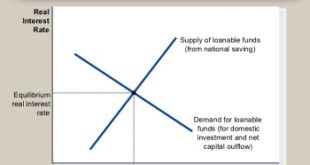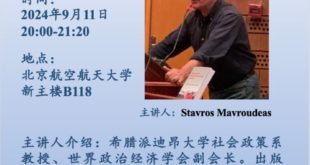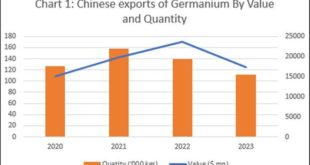My latest in The Guardian Announcements from major employers, including Amazon and Tabcorp, that workers will be required to return to the office five days a week have a familiar ring. There has been a steady flow of such directives. The Commonwealth Bank CEO, Matt Comyn, attracted a lot of attention with an announcement that workers would be required to attend the office for a minimum of 50% of the time, while the NSW public service was recently asked to return to the office at...
Read More »Break Up Economics — continued
from Peter Radford What? Surely not! How dare he suggest such a thing. What, you are correct in asking, am I talking about? The recent speech by a Department of Justice official who dared suggest that it is getting quite difficult to find a truly neutral technocratic expert to give testimony in court. Imagine the cheek. How dare he question ‘expertise’. Especially economic expertise, which is, surely, the gold standard. Why did he say what he said? Because academics are apparently so...
Read More »Varieties of capitalism and societal happiness: theory and empirics
This paper investigates the impact of different varieties of capitalism (VoC) on societal happiness. It begins with a critique of Neoclassical welfare economics which emphasizes Pareto optimality, and it argues for focusing on reported societal happiness. The paper identifies five VoC. Using a sample of twenty-six high-income countries drawn from the 2020 World Happiness Report, […]
Read More »What is heterodox economics?
from Lars Syll Based on our interviews, heterodox economics appears to be a positive project, inevitably defined somewhat in terms of the mainstream but not exhaustively so. It is also efficacious, with policy and real-world impact. It is a complex object, not amenable to definition by a single criterion. Its dimensions are partly intellectual, in terms of what it believes. It holds a realist position. It is concerned with asymmetric power relations, in the economy and in the economics...
Read More »Rizzo goes for the guild
from Peter Radford Is it a cult? Is it a guild? Both perhaps? I remember reading sometime not long ago that Steve Levitt was leaving Chicago. Two things stood out in the article bringing that news: first, Levitt said he was concerned that economics was becoming irrelevant; second, someone had told him he was not doing ‘proper economics’. Here’s a clue who that someone was: Heckman. Then, more recently, the Financial Times editorial page accused the economics discipline of becoming a...
Read More »Windows in the past. Some words on glass, the importance of repairing broken windows and GDP.
This post was written because of a tweet by David Andalfatto, who wondered why medieval and early modern Europe, a society that built cathedrals, did not show any per capita growth. Per capita growth is an average, and when the rich get richer, it can increase even when the number of poor and destitute increases. The question is: was something like this the case in the time of the cathedrals? I won’t give a definite answer. But I will go beyond ´real´ GDP per capita (ultimately a...
Read More »We or They
Like most academics these days, I spend a lot of time filling in online forms. Mostly, this is just an annoyance but occasionally I get something out of it. A recent survey in which the higher-ups tried to get an idea of how the workforce was feeling, asked the question “Do you think of the University as We or They?”. Unsurprisingly given my reference to “higher-ups”, my answer was “They”. But giving the answer reminded me that, not so long ago, it would have been “We”. In its...
Read More »Rethinking public debt
from Lars Syll Few issues in politics and economics are nowadays more discussed — and less understood — than public debt. Many raise their voices to urge for reducing the debt, but few explain why and in what way reducing the debt would be conducive to a better economy or a fairer society. And there are no limits to all the — especially macroeconomic — calamities and evils a large public debt is supposed to result in — unemployment, inflation, higher interest rates, lower productivity...
Read More »‘Once again on the alleged differences between Engels and Marx’ – S.Mavroudeas, Beihang University, School of Marxism, Beijing, 11-9-2024
I was invited to give a lecture at the School of Marxism of Beihang University (Beijing, China, 11-9-2024). The subject of my talk is ‘Once again on the alleged differences between Engels and Marx. It is based in my paper in International Critical Thought.
Read More »The Chinese threat in critical minerals
from C. P. Chandrasekhar and Jayati Ghosh It is more than a year since China, reportedly in retaliation to US-driven restrictions on exports of advanced semiconductors and related manufacturing equipment, imposed export controls on two crucial materials—germanium and gallium—that enter into the production of semiconductors and military and communications equipment (advanced microprocessors, fibre-optic products and night-vision goggles). Imposed in the name of safeguarding “national...
Read More » Heterodox
Heterodox





